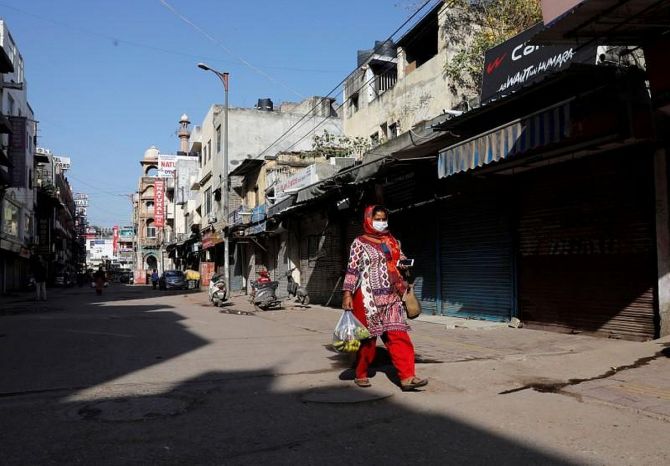Following are the highlights of Economic Survey 2020-21, tabled in Parliament by Finance Minister Nirmala Sitharaman on Friday.

- Economic contraction projected at 7.7% in FY21
- 11% GDP growth projected in FY22, farm sector remains silver lining
- V-shaped recovery supported by COVID vaccination drive
- Rebound to be led by low base and continued normalisation in economic activities as vaccine rollout gathers traction
- Govt consumption, net exports have cushioned growth from further diving down
- Exports to decline by 5.8%, imports by 11.3% in 2nd half of FY21
- India expected to have a Current Account Surplus of 2% of GDP this fiscal, a historic high after 17 years
- India's sovereign credit ratings do not reflect its fundamentals, India's willingness to pay is unquestionably demonstrated through its zero sovereign default history
- India's fiscal policy should reflect Gurudev Rabindranath Tagore's sentiment of ‘a mind without fear'
Healthcare:
- India's lockdown strategy prevented 37 lakh COVID-19 cases, 1 lakh deaths
- Survey recommends increase in public healthcare spending from 1% to 2.5-3% of GDP
- India's health infrastructure must be agile to respond to pandemics - healthcare policy must not become beholden to 'saliency bias'
- Telemedicine needs to be harnessed to the fullest by investing in internet connectivity and health infrastructure
Process reforms:
- India over-regulates the economy resulting in regulations being ineffective even with relatively good compliance with process
- The solution is to simplify regulations and invest in greater supervision which, by definition, implies greater discretion
- India's business sector needs to significantly ramp up investments in R&D
- Survey suggests asset quality review exercise immediately after the forbearance is withdrawn
- Forbearance represents 'emergency medicine' that should be discontinued at the first opportunity when the economy exhibits recovery, not a 'staple diet' that gets continued for years
- Legal infrastructure for the recovery of loans needs to be strengthened de facto
Fiscal developments
- India adopted a calibrated approach best suited for a resilient recovery of its economy from COVID-19 pandemic impact, in contrast with a front-loaded large stimulus package adopted by many countries
- India remained a preferred investment destination with FDI pouring in amidst global asset shifts towards equities and prospects of quicker recovery in emerging economies
- Net FPI inflows recorded an all-time monthly high of USD 9.8 billion in November 2020, as investors' risk appetite returned
- India only country among emerging markets to receive equity FII inflows in 2020
- India the fastest country to roll out 10 lakh vaccines in 6 days and also emerged as a leading supplier of the vaccine to neighbouring countries and Brazil
- India's mature policy response provides important lessons for democracies to avoid myopic policy-making.
Photograph: Adnan Abidi/Reuters











 © 2025
© 2025